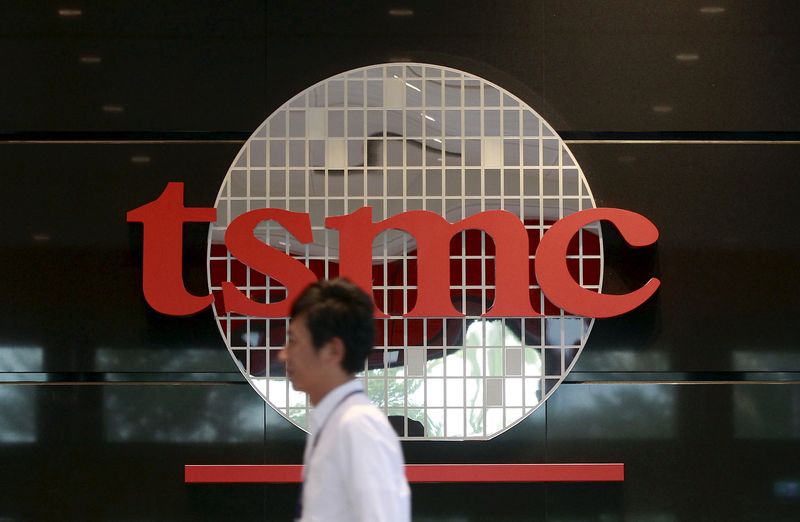Investing.com-- Taiwan Semiconductor Manufacturing Corp (TW:2330) (NYSE:TSM), or TSMC, clocked a stronger-than-expected first-quarter profit on Wednesday as the world’s largest contract chipmaker benefited from increased demand in the rapidly-growing artificial intelligence industry.
TSMC’s net income rose to T$225.49 billion for the three months to March 31, higher than Reuters estimates of T$218.1 billion ($6.7 billion). The figure was also well above last year’s net income of T$206.99 billion.
Diluted Q1 earnings per share were T$8.70 or $1.38 per American Depository Receipt, up from $1.31 last year.
But net income fell 5.5% on a quarterly basis, signaling that demand may have cooled slightly from highs in 2023.
TSMC was also undertaking increased costs to fund increased chip development. Capital expenditures rose to $5.77 billion in Q1 2024 from $5.24 billion in the prior quarter.
First-quarter revenue rose 16.5% to T$592.64 billion. The strong year-on-year rise was also, in part, driven by a lower base for comparison, given that TSMC was still struggling with weak chip demand in 2023.
TSMC also benefited from weakness in the Taiwan dollar through the first quarter, which boosted its dollar earnings.
The positive earnings come on the back of growing demand for chips from the AI industry. TSMC's earnings are largely seen as a bellwether for global chip demand, given the firm's pivotal role in the chipmaking industry.
The firm is the world's largest contract chipmaker and has several technology stalwarts, including Nvidia (NASDAQ:NVDA) and Apple (NASDAQ:AAPL), as its customers.
Nvidia, in particular, has been a key source of demand for TSMC, given that the firm makes the most advanced AI chips currently available in the market.
To this end, TSMC's valuation has largely tracked an astronomical rise in Nvidia over the past year.
Reacting to the report, analysts at Morgan Stanley said second-quarter guidance was slightly better than consensus. However, they noted that TSMC "didn’t revise up its full-year revenue guidance."
"Management cited the slow recovery of non-AI demand, including smartphone, PC, automotive, and general servers," wrote the bank. Even so, Morgan Stanley believes the stock will further re-rate based on the AI growth potential amid limited EPS upside in 2024.
Premarket, TSMC's shares are down 1.9%.
